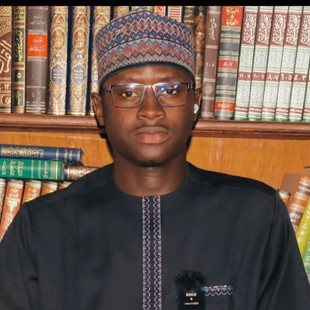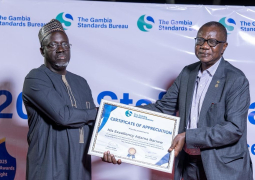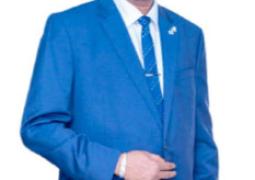
Supporters of Imam Abdul Kareem assembled peacefully at the Arch in Banjul on Monday, hours before his scheduled questioning at the Police Headquarters. Chanting prayers and messages of solidarity, they vowed to stand by the cleric, whom they describe as a courageous voice in Gambian Islam.
Police invited the imam to appear at 2 p.m., following a complaint filed by the Mouride community, who called his sermon “offensive and disrespectful” to their faith. The comments have since ignited one of the most polarising religious debates the country has witnessed in recent years.
Born and raised in The Gambia, Imam Abdul Kareem is not just any cleric. He is a hafiz of the Qur’an and one of the most academically accomplished young imams in the nation, holding a Bachelor’s degree from the University of The Gambia and a Master’s degree from Beijing Normal University in China. Before his university education, he taught in schools and earned a Higher National Diploma in English and Social Sciences. Today, he runs a Daara, where he teaches children about Islam.
But his reputation as an educated religious leader collided with public sensitivities after his fiery sermon. “The Magal Touba is not part of Islam,” he told his congregation. “Anyone who goes there and dies will end up in hell.” He further claimed that “nightclub-goers are better than those who travel to Touba for Magal.”
The backlash was swift. The Ministry of Lands, Regional Government and Religious Affairs condemned the remarks and issued an official apology, describing them as “inappropriate and unacceptable.” In a statement, the ministry said: “We extend a heartfelt apology to the Mouride community, both within The Gambia and around the world. The remarks have caused significant pain and misunderstanding within the Mouride as well as Muslim community in general.”
The ministry also revealed that Imam Abdul Kareem has since admitted his mistake, repented, and issued an apology. Still, the controversy refuses to die down. While the government insists such remarks “must not be tolerated,” groups such as Team Ibadu Rahman have rallied behind the imam, urging him not to retract his words and portraying him as a defender of orthodoxy.
For many Gambians, the case has exposed the delicate balance between freedom of expression, respect for religious diversity, and the role of the state in mediating disputes within the Muslim ummah.
As Imam Abdul Kareem faces police questioning, the streets of Banjul remain charged, with his critics demanding accountability while his supporters pray for his vindication. The outcome of the investigation could mark a defining moment for religious discourse in The Gambia.
Read Other Articles In Headlines
ECOWAS re-affirms commitment to regional development at 65th ordinary session
Jul 8, 2024, 11:21 AM




